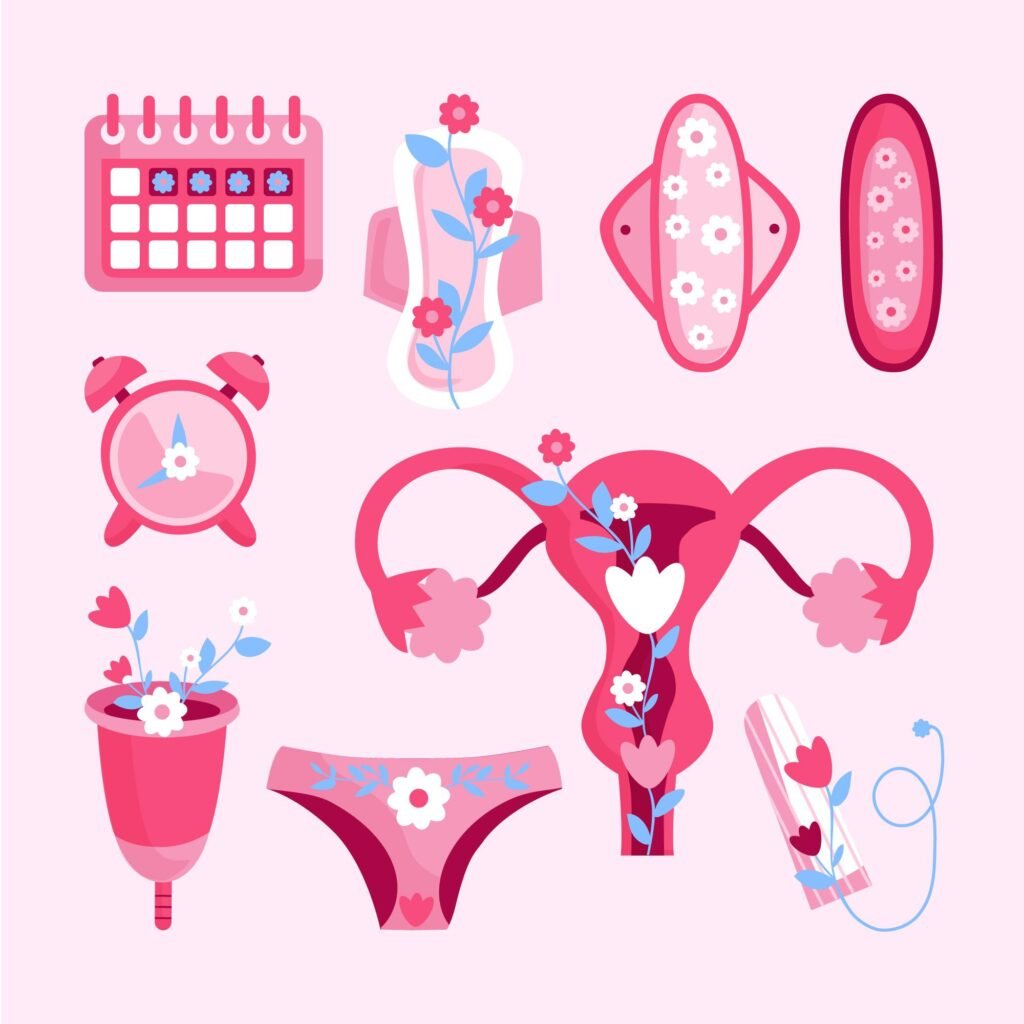Debunking Period Myths
Jessica Luu
June 2024
Periods. The natural bodily function experienced by half of our world’s population.[9] Yet, why does the word “period” itself evoke such a sense of discomfort and embarrassment in many? From old wives’ tales to misguided beliefs, periods have continued to be misunderstood and misrepresented. It’s time to set the record straight and separate fact from fiction.
Myth #1: Menstruation is Dirty
Probably the most pervasive myths about periods is that they are unclean and dirty. The idea that menstruation is impure can be traced back to ancient cultural and religious beliefs.[6] In many cultures, menstruating individuals have been isolated or excluded from certain activities under the notion that they are contaminated and will bring bad luck.[6]
Menstruation is not dirty. As mentioned previously, the process is a natural bodily function, similar to sweating or urination. Period blood is not toxic or harmful either. It is simply the body’s way of shedding its uterine lining, which is necessary in restoring its reproductive health.[2] And in reality, proper hygiene practices, such as using menstrual products and regularly changing them are sufficient enough to maintain cleanliness during one’s cycle.

Myth #2: Women Should Avoid Physical Activity During Their Periods
Many believe that women should avoid exercise or physical activity while menstruating, thinking that physical exercise could worsen menstrual symptoms and cause harm. However, in reality, moderate exercise can actually alleviate symptoms such as cramps, bloating, and mood swings by increasing blood flow and releasing endorphins (i.e. the body’s painkillers).[5]So while it’s important to listen to one’s body and not overdo it, regular physical activity can actually be beneficial during menstruation and often prove to be more advantageous than not.
Myth #3: You Can’t Get Pregnant During Your Period
Another common myth is that women cannot conceive while on their period. While the chances of getting pregnant during menstruation are lower, it is still possible, particularly for women with shorter menstrual cycles.[8] Sperm can live inside the female body for up to five days, and if a woman ovulates soon after her period, conception can occur.[7] Therefore, contraception should still be used if pregnancy is not desired.
Myth #4: Menstrual Blood is Different from Regular Blood
No, menstrual blood is not different from regular blood. Rather, menstrual blood is the same as regular blood, with some added components. It contains the same elements as the blood that circulates through the body—red and white blood cells, and plasma.[1] However, menstrual blood also includes endometrial tissue and cervical mucus, which gives it a thicker consistency and can sometimes cause it to appear darker or have clots.[4]
Myth #5: Tampons Can Get Lost Inside You
There is a common fear that tampons can get lost inside the body, causing many to be reluctant to use tampons. However, the reality is quite different.
Tampons are designed with a string attached to the end precisely to prevent them from getting lost. The cervix, which is the opening to the uterus,[3] is too small for a tampon to pass through. The cervix ensures that tampons stay in the vaginal canal and do not enter the uterus or other parts of the body.
Conclusion
It’s about time we normalize conversations about menstruation and educate society about its importance. They are a normal and essential part of life for many people, and they deserve to be discussed openly and without shame. Period.
References:
[1] American Society of Hematology. (2020). Blood basics. American Society of Hematology. https://www.hematology.org/education/patients/blood-basics
[2] Better Health Channel. (2024). Menstrual cycle. State Government of Victoria, Australia. https://www.betterhealth.vic.gov.au/health/conditionsandtreatments/menstrual-cycle
[3] Canadian Cancer Society. (2021). The cervix. Canadian Cancer Society. https://cancer.ca/en/cancer-information/cancer-types/cervical/what-is-cervical-cancer/the-cervix
[4] Clue. (2016). Blood clots during your period: What are they? Clue. https://helloclue.com/articles/cycle-a-z/blood-clots-during-your-period-what-are-they
[5] Holland, K. (2019, May 15). Exercise during your period: Is it good or bad? Healthline. https://www.healthline.com/health/exercise-during-period
[6] Khan, S., Ali, S. A., Siddiqui, M. F., Shinwari, Z. K., & Afzal, B. (2019). Estimation of healthcare waste generation in different hospitals of Karachi, Pakistan. Environmental Monitoring and Assessment . https://doi.org/10.1007/s10661-019-7732-4
[7] MedlinePlus. (2015). Sperm survival. MedlinePlus. https://medlineplus.gov/ency/article/007015.htm
[8] National Institutes of Health. (2020). Misinformation During a Pandemic. PubMed Central (PMC). https://www.ncbi.nlm.nih.gov/pmc/articles/PMC10008511/
[9] Zerbo, O., Bell, G., Lee, H. C., Mangurian, C., & Crown, L. A. (2023). Maternal mental health conditions during and after pregnancy and the risk of autism spectrum disorder in offspring: A population-based cohort study. Journal of Autism and Developmental Disorders,https://doi.org/10.1007/s10803-022-05770-8





